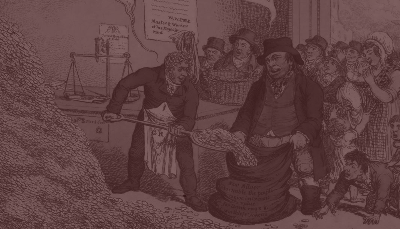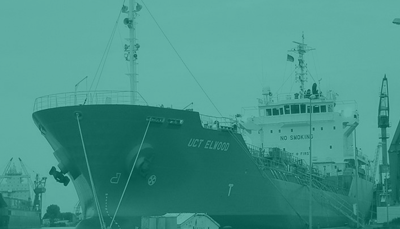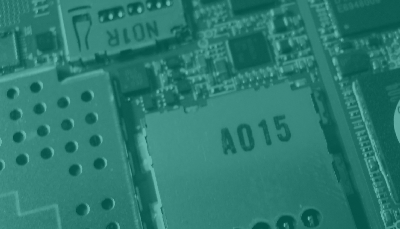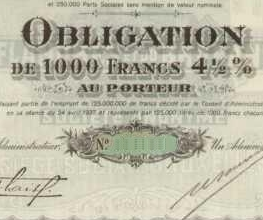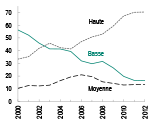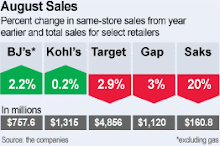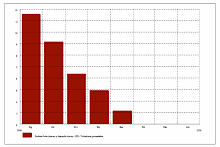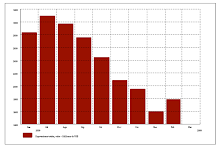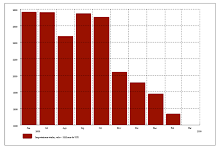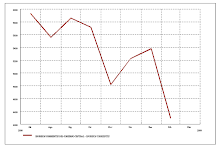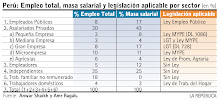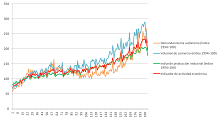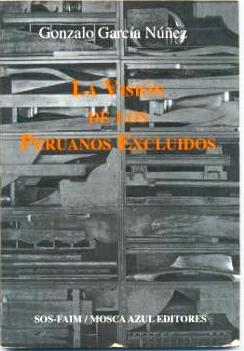Commodity booms and busts: Evidence from 1900 to 2015 | VOX, CEPR’s Policy Portal
17. TASAS DE INTERES Peru
16. tipo de cambio sol/dolar-consulta del dia
V. SECCION: M. PRIMAS
1. SECCION:materias primas en linea:precios
![[Most Recent Quotes from www.kitco.com]](http://www.weblinks247.com/indexes/gfms.gif) |
METALES A 30 DIAS click sobre la imagen
(click sur l´image)
2. PRECIOS MATERIAS PRIMAS
9. prix du petrole
10. PRIX essence
petrole on line
30 abr 2015
28 abr 2015
Fwd: Macroperu Re: Las preguntas de Diego Ordóñez - Peruanos migrantes
From: asanchez_092004 <asanchez@inei.gob.pe>
Date: 2009/10/2
Subject: Macroperu Re: Las preguntas de Diego Ordóñez - Peruanos migrantes
To: MacroPeru@yahoogroups.com
Cifras de la migración internacional peruana: en el periodo 1990-2007, 1´940,817 peruanos salieron del país y no han retornado. Entre 1990-2008, los migrantes peruanos en el mundo remesaron al país US$ 16,408 millones de dólares. El Censo de Población y Vivienda 2007, registro 704 mil hogares peruanos con migración internacional.
A fin de aportar algo más la migración internacional peruana, comparto el libro: Peruanos Migrantes en la Ruta del Quijote, link: http://www2.inei.gob.pe/DocumentosPublicos/Peruanos_Migrantes_en_la_Ruta_de_El_Quijote.pdf
--- I
27 abr 2015
RV: La Newsletter du CEPII - Mars 2015
Enviado: lunes, 23 de marzo de 2015 07:35 a.m.
Para: ggarcianunez
Asunto: La Newsletter du CEPII - Mars 2015
11 Mars 2015 What is happening with Ukraine : economic and political snapshot 12 Mars 2015 Pietro Ichino & Pietro Garibaldi sur ''les effets du Jobs Act'' 24 Mars 2015 Les relations bilatérales France - Turquie 24 Mars 2015 Secular Stagnation: Housing to the Rescue? 9 Avril 2015 Moritz Schularick on: Credit and the Macroeconomy 9 Avril 2015 3ème Printemps de l'économie : "Mais où va donc la planète ?" 13 - 17 Avril, 2015 Michèle Debonneuil, Louis Gallois et Michel Fouquin sur : Mondialisation du commerce et de l'industrie : une nouvelle ère ? 16 Avril 2015 1st MENA Trade Workshop - Call for Papers - Deadline for submitting: Feb, 22 2 - 3 Juin, 2015 15th Doctoral Meetings in International Trade and International Finance - Call for paper - Deadline for submitting: March 9 25 - 26 Juin, 2015 L'Economie mondiale 2016 - SAVE THE DATE 9 Septembre 2015 XIII ELSNIT Annual Conference : Trade Facilitation - Call for Papers - Deadline for submitting: May, 15 23 - 24 Octobre, 2015 Agriculture, International Trade and Development - Call for Papers - Deadline for submitting: July 31 19 - 20 Novembre, 2015
|
ISSN: 1255-7072
Directeur de publication : Sébastien JeanRédacteur en chef : Dominique Pianelli | ||||||||||||||
Gérer son abonnement Les informations qui vous concernent sont strictement destinées au CEPII. Vous disposez d'un droit d'accès, de modification, de rectification et de suppression des données vous concernant (loi « Informatique et Libertés » du 6 janvier 1978 modifiée). Pour toute demande, adressez-vous à : cepiiweb@cepii.fr | |||||||||||||||
Etiquetas: 2015, abr2015, cepij, EURO, EXPORTACION, FRANCE, PPT_CRISIS, REGULACION
Los problemas deL Grupo Mexico en USA y el papel del Perú en el jucio de bancarrota.
2 copper mines in Peru spurring Grupo Mexico
Retaking Asarco is way to preserve huge stake in mines' parent company, analysts say
--
http://www.betaggarcian.blogspot.com/
Fwd: Macroperu Peru II: Centenario: Trayectoria del PBI per cápita 1830-2021
From: lbseminario <lbseminario@gmail.com>
Date: 2009/10/21
Subject: Macroperu Peru II: Centenario: Trayectoria del PBI per cápita 1830-2021
To: MacroPeru@yahoogroups.com
--
http://www.betaggarcian.blogspot.com/
LEAP/E2020 Press Review on the Global Systemic Crisis
| |||||||||||||||||||||||||||||||||||||||||||||||||||||||||||||||||||||||||||||||||||||||||||||||||||||||
Etiquetas: 2013, CRISIS, ECONOMIA, geab, global, jun13, MACROECONOMICS, piketty, postcrisis, PRODUCCION, PRODUCTIVIDAD, RECESION
25 abr 2015
RT en Español: El gran armagedón financiero (E749) - Keiser Report en español
RT en Español: El gran armagedón financiero (E749) - Keiser Report en español. http://google.com/newsstand/s/CBIwmbPrsiE
15 abr 2015
12 abr 2015
11 abr 2015
9 abr 2015
6 abr 2015
Tweet de La Mula (@lamula)
[FOTOS] #FujimoriNuncaMás
(y de yapa, una cancioncita de Keiko) http://t.co/cQ6ETCl6ak http://t.co/Y2DPwXOyzh
(https://twitter.com/lamula/status/584910104555888640?s=03)
Etiquetas: 2015, AMERICALATINA, GONZALO GARCIA, POLITICA
4 abr 2015
Fw: real-world economics review - issue no. 66
real-world economics review - issue no. 66
- A journal of the World Economics Association (WEA) 12,557 members, join here
- Sister open access journals: Economic Thought and World Economic Review
- back issues at www.paecon.net recent issues: 65 64 63 62 61 60 59 58 57 56
http://www.paecon.net/PAEReview/issue66/whole66.pdf
You can download the whole issue as a pdf document by clicking here
Bernard Guerrien and Ozgur Gun download pdf 58
Shimshon Bichler and Jonathan Nitzan download pdf 65
Hubert Buch-Hansen download pdf 80
Jamie Morgan and Brendan Sheehan download pdf 95
New Paradigm Economics vs. Old Paradigm Economics download pdf 131
Your email subscriptions, powered by FeedBlitz, LLC, 9 Thoreau Way, Sudbury, MA 01776, USA. +1.978.776.9498
ENTREVISTAS TV CRISIS GLOBAL
Etiquetas
- 1 MAYO
- 2
- 2002
- 2007
- 2008
- 2009
- 2010
- 2011
- 2012
- 2013
- 2014
- 2015
- 2016
- 2o11
- 2OO9
- a
- abr2015
- abril09
- abril10
- acc
- actualidadecono
- AFP
- AFPS
- AFRICA
- Ago11
- AGOS
- AGOST10
- agost12
- AGOSTO2008
- AGOSTO2009
- agosto2015
- AGRO
- AGROEXPORTACION
- AIG
- AL
- ALAGROEXPORTACION
- ALEMANIA
- ALIMENTOS
- amazonia
- AMERICALATINA
- ANDAHUAYLAS
- APEC
- ARCH MES
- ARGENTINA
- asarco
- ASIA
- ATTAC
- australia
- AUTOMOVIL
- AVAAZ
- b
- BAILOUT
- baltic
- BANCOS
- BC
- BCE
- BCRP
- benassy
- benedetti
- BERNANKE
- bernis
- BIELORUSIA
- BIS
- blanchard
- BOE
- BOJ
- BOLIVIA
- BOLSA
- BONUS
- BRASIL
- BRIC
- BUBBLE
- bundesbank
- C
- c rec
- CAFE
- CAMBIOCLIMATICO
- CAMERICAS
- CAN
- CANADA
- CANCION
- CAPITALISMO
- castro
- CDO
- cepij
- CHAVEZ
- cheque
- CHILE
- chimerica
- CHINA
- CHRYSLER
- CICLO
- CIE
- ciencia
- CIP
- COBRE
- COLOMBIA
- COMERCIO
- commodities
- COMPUTO
- CONSTRUCCION
- CONSUMO
- CONTAGIO
- control
- COPENHAGUE
- CORRUPCION
- coursera
- CRECIMIENTO
- CREDITO
- CRISIS
- CUBA
- CUMBREALCUE
- CUMBREALCUSA
- davos
- DEC08
- DEC11
- dec12
- DEC13
- dec15
- DEFICIT
- DEFLACION
- demanda
- DEPRESION
- DERIVADOS
- DEUDA
- developpement
- DIC09
- DIC10
- dic12
- DICIEMBRE
- do
- DOLAR
- doubledip
- dsk
- dubai
- duracion
- ec
- ecologo
- ECONOMIA
- ECUADOR
- EDUCA
- efectos
- EMPLEO
- EN11
- en16
- EN2016
- encuesta
- ene016
- energia
- ENERO
- ENERO09
- enero10
- EST
- eu
- EURO
- expansion
- EXPORTACION
- f
- fannie
- feb09
- feb10
- feb13
- feb15
- FED
- filo
- fin
- FINANZAS
- FINLANDIA
- fisica
- flu
- FMI
- FONDOS
- fr
- FRANCE
- frankfurt
- frontrunning
- fukushima
- G20
- G7
- GAS
- geab
- GEITHNER
- gini
- GLO
- global
- GM
- GONZALO GARCIA
- grece
- GREENSPAN
- GRENOBLE
- gripeporcina
- grupo mexico
- HAITI
- hambre
- HEDGE FUNDS
- HIPOTECA
- hist
- HOLLANDE
- HONDURAS
- IMPORTACION
- IMPUESTOS
- INDE
- INDIGNADOS
- INDUSTRIAL
- INFLACION
- INFORMALIDAD
- INFRAESTRUCTURA
- INGENIERIA
- INGENIEROS
- innova
- INTEGRACION
- INTERNACIONAL
- INVERSION
- IRAN
- IRLANDA
- ISLANDIA
- ismea
- ITALIA
- IZQ
- JAPON
- JUL11
- JULIO08
- JULIO09
- JULIO15
- JUN09
- jun10
- jun11
- JUN12
- jun13
- jun15
- JUNIO08
- keynes
- KRUGMAN
- lagarde
- LAREPUBLICA
- leap
- leverage
- liquidez
- LITIO
- lme
- LR
- macro
- MACROECONOMICS
- madera
- MADOFF
- MAMBIENTE
- MANGO
- MARS09
- mars10
- marx
- matematicas
- MATERIASPRIMAS
- MATUK
- MAY09
- MAY11
- MAY12
- MAY13
- may15
- may2015
- MAYO
- MBS
- me
- mef
- MERKEL
- METALES
- MEXICO
- miga
- MIGRA
- MINERIA
- MODELES
- MONDE
- MONEDA
- mourey
- MUJICA
- MUNDO
- musica clasica
- NACIONALIZACION
- neural
- niño
- nobel
- NOTASEMANAL
- NOV08
- nov09
- nov10
- NOV11
- NOV12
- nov15
- nuclear
- OBAMA
- OCDE
- oct09
- oct10
- OCT11
- oct12
- OCTUBRE08
- OFCE
- OIT
- OMC
- ORO
- paita
- PANAMA
- PAPA
- PARADIS
- PARAGUAY
- PAULSON
- pbi
- pe
- PEÑAFLOR
- PERU
- pesca
- PETROLEO
- piketty
- PLAN
- PMI
- POBLA
- POBREZA
- POL
- POLITICA
- porter
- portugal
- postcrisis
- PPT_CRISIS
- PRODUCCION
- PRODUCTIVIDAD
- profits
- prog
- PROTECCION
- QUIEBRA
- r
- RECESION
- REGULACION
- REMESAS
- REPEC
- REPRISE
- REPSOL
- RESERVAS
- RETAIL
- RGE
- RIESGOPAIS
- RMBS
- ROBOTICA
- RODRIK
- ROUBINI
- RUSIA
- SALARIOS
- SARKO
- school paris
- sep11
- SEP15
- SEQUIA
- SERVICIOS
- set09
- set10
- set11
- set12
- SET15
- SETIEMBRE08
- SINGAPUR
- SIRIA
- sismo
- soros
- southern
- SPAIN
- STANFORD
- STIGLITZ
- SUBPRIMES
- SUISSE
- SYRIZA
- TAIWAN
- TARIFAS
- TAS
- TCAMBIO
- TECNOLOGIA
- TERRITORIO
- TEXTIL
- TINTERES
- TLC
- TPP
- trabajo
- trentin
- TRICHET
- TROIKA
- tsunami
- TURISMO
- TV
- UBS
- UE
- UK
- UKRANIA
- UNASUR
- URUGUAY
- USA
- v
- VENEZUELA
- VIDEO
- vivienda
- WALL STREET
- WS
- wsj
- YEN
- young
- YUAN
- Zbasura
- zerohedge
Peru:crisis impacto regional arequipa,raul mauro
Temas CRISIS FINANCIERA GLOBAL
claves para pensar la crisis
-Tipo de cambio
- DIARIOS DE HOY
PRESS CLIPPINGS-RECORTES PRENSA-PRESSE..
canciones de GRACIAS A LA VIDA !
ETIQUETAS alfabetico
- 1 MAYO
- 2
- 2002
- 2007
- 2008
- 2009
- 2010
- 2011
- 2012
- 2013
- 2014
- 2015
- 2016
- 2o11
- 2OO9
- a
- abr2015
- abril09
- abril10
- acc
- actualidadecono
- AFP
- AFPS
- AFRICA
- Ago11
- AGOS
- AGOST10
- agost12
- AGOSTO2008
- AGOSTO2009
- agosto2015
- AGRO
- AGROEXPORTACION
- AIG
- AL
- ALAGROEXPORTACION
- ALEMANIA
- ALIMENTOS
- amazonia
- AMERICALATINA
- ANDAHUAYLAS
- APEC
- ARCH MES
- ARGENTINA
- asarco
- ASIA
- ATTAC
- australia
- AUTOMOVIL
- AVAAZ
- b
- BAILOUT
- baltic
- BANCOS
- BC
- BCE
- BCRP
- benassy
- benedetti
- BERNANKE
- bernis
- BIELORUSIA
- BIS
- blanchard
- BOE
- BOJ
- BOLIVIA
- BOLSA
- BONUS
- BRASIL
- BRIC
- BUBBLE
- bundesbank
- C
- c rec
- CAFE
- CAMBIOCLIMATICO
- CAMERICAS
- CAN
- CANADA
- CANCION
- CAPITALISMO
- castro
- CDO
- cepij
- CHAVEZ
- cheque
- CHILE
- chimerica
- CHINA
- CHRYSLER
- CICLO
- CIE
- ciencia
- CIP
- COBRE
- COLOMBIA
- COMERCIO
- commodities
- COMPUTO
- CONSTRUCCION
- CONSUMO
- CONTAGIO
- control
- COPENHAGUE
- CORRUPCION
- coursera
- CRECIMIENTO
- CREDITO
- CRISIS
- CUBA
- CUMBREALCUE
- CUMBREALCUSA
- davos
- DEC08
- DEC11
- dec12
- DEC13
- dec15
- DEFICIT
- DEFLACION
- demanda
- DEPRESION
- DERIVADOS
- DEUDA
- developpement
- DIC09
- DIC10
- dic12
- DICIEMBRE
- do
- DOLAR
- doubledip
- dsk
- dubai
- duracion
- ec
- ecologo
- ECONOMIA
- ECUADOR
- EDUCA
- efectos
- EMPLEO
- EN11
- en16
- EN2016
- encuesta
- ene016
- energia
- ENERO
- ENERO09
- enero10
- EST
- eu
- EURO
- expansion
- EXPORTACION
- f
- fannie
- feb09
- feb10
- feb13
- feb15
- FED
- filo
- fin
- FINANZAS
- FINLANDIA
- fisica
- flu
- FMI
- FONDOS
- fr
- FRANCE
- frankfurt
- frontrunning
- fukushima
- G20
- G7
- GAS
- geab
- GEITHNER
- gini
- GLO
- global
- GM
- GONZALO GARCIA
- grece
- GREENSPAN
- GRENOBLE
- gripeporcina
- grupo mexico
- HAITI
- hambre
- HEDGE FUNDS
- HIPOTECA
- hist
- HOLLANDE
- HONDURAS
- IMPORTACION
- IMPUESTOS
- INDE
- INDIGNADOS
- INDUSTRIAL
- INFLACION
- INFORMALIDAD
- INFRAESTRUCTURA
- INGENIERIA
- INGENIEROS
- innova
- INTEGRACION
- INTERNACIONAL
- INVERSION
- IRAN
- IRLANDA
- ISLANDIA
- ismea
- ITALIA
- IZQ
- JAPON
- JUL11
- JULIO08
- JULIO09
- JULIO15
- JUN09
- jun10
- jun11
- JUN12
- jun13
- jun15
- JUNIO08
- keynes
- KRUGMAN
- lagarde
- LAREPUBLICA
- leap
- leverage
- liquidez
- LITIO
- lme
- LR
- macro
- MACROECONOMICS
- madera
- MADOFF
- MAMBIENTE
- MANGO
- MARS09
- mars10
- marx
- matematicas
- MATERIASPRIMAS
- MATUK
- MAY09
- MAY11
- MAY12
- MAY13
- may15
- may2015
- MAYO
- MBS
- me
- mef
- MERKEL
- METALES
- MEXICO
- miga
- MIGRA
- MINERIA
- MODELES
- MONDE
- MONEDA
- mourey
- MUJICA
- MUNDO
- musica clasica
- NACIONALIZACION
- neural
- niño
- nobel
- NOTASEMANAL
- NOV08
- nov09
- nov10
- NOV11
- NOV12
- nov15
- nuclear
- OBAMA
- OCDE
- oct09
- oct10
- OCT11
- oct12
- OCTUBRE08
- OFCE
- OIT
- OMC
- ORO
- paita
- PANAMA
- PAPA
- PARADIS
- PARAGUAY
- PAULSON
- pbi
- pe
- PEÑAFLOR
- PERU
- pesca
- PETROLEO
- piketty
- PLAN
- PMI
- POBLA
- POBREZA
- POL
- POLITICA
- porter
- portugal
- postcrisis
- PPT_CRISIS
- PRODUCCION
- PRODUCTIVIDAD
- profits
- prog
- PROTECCION
- QUIEBRA
- r
- RECESION
- REGULACION
- REMESAS
- REPEC
- REPRISE
- REPSOL
- RESERVAS
- RETAIL
- RGE
- RIESGOPAIS
- RMBS
- ROBOTICA
- RODRIK
- ROUBINI
- RUSIA
- SALARIOS
- SARKO
- school paris
- sep11
- SEP15
- SEQUIA
- SERVICIOS
- set09
- set10
- set11
- set12
- SET15
- SETIEMBRE08
- SINGAPUR
- SIRIA
- sismo
- soros
- southern
- SPAIN
- STANFORD
- STIGLITZ
- SUBPRIMES
- SUISSE
- SYRIZA
- TAIWAN
- TARIFAS
- TAS
- TCAMBIO
- TECNOLOGIA
- TERRITORIO
- TEXTIL
- TINTERES
- TLC
- TPP
- trabajo
- trentin
- TRICHET
- TROIKA
- tsunami
- TURISMO
- TV
- UBS
- UE
- UK
- UKRANIA
- UNASUR
- URUGUAY
- USA
- v
- VENEZUELA
- VIDEO
- vivienda
- WALL STREET
- WS
- wsj
- YEN
- young
- YUAN
- Zbasura
- zerohedge
![[Most Recent Quotes from www.kitco.com]](http://www.kitconet.com/charts/metals/base/spot-copper-30d.gif)
![[Most Recent Quotes from www.kitco.com]](http://www.kitconet.com/charts/metals/base/zinc-d.gif)
![[Most Recent Quotes from www.kitco.com]](http://www.kitconet.com/charts/metals/base/lead-d.gif)
![[Most Recent Quotes from www.kitco.com]](http://www.kitconet.com/charts/metals/base/spot-nickel-30d.gif)

